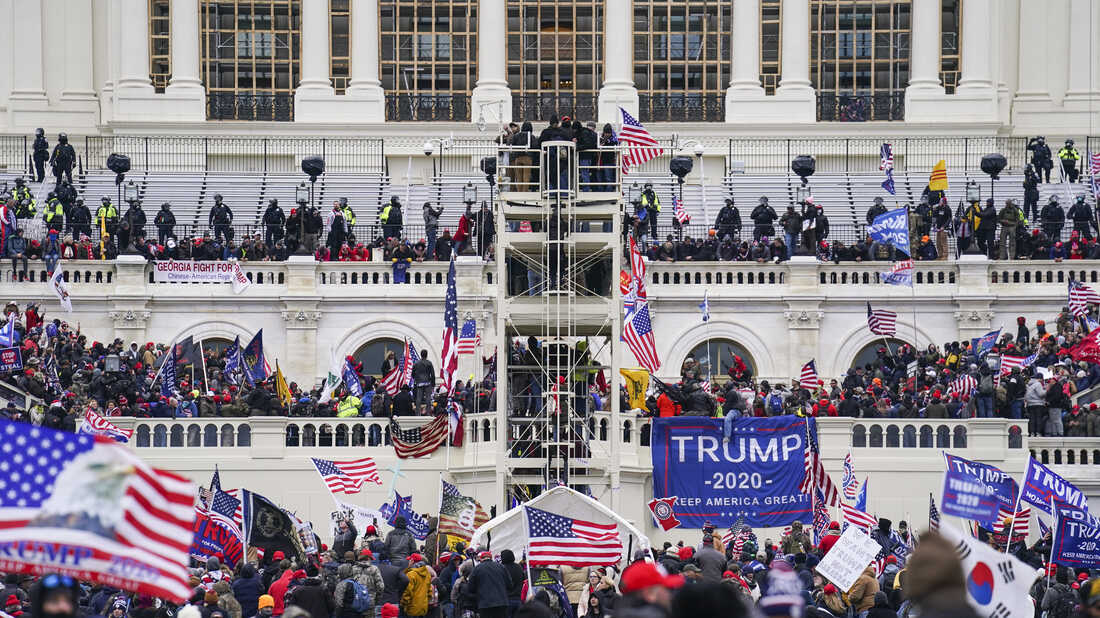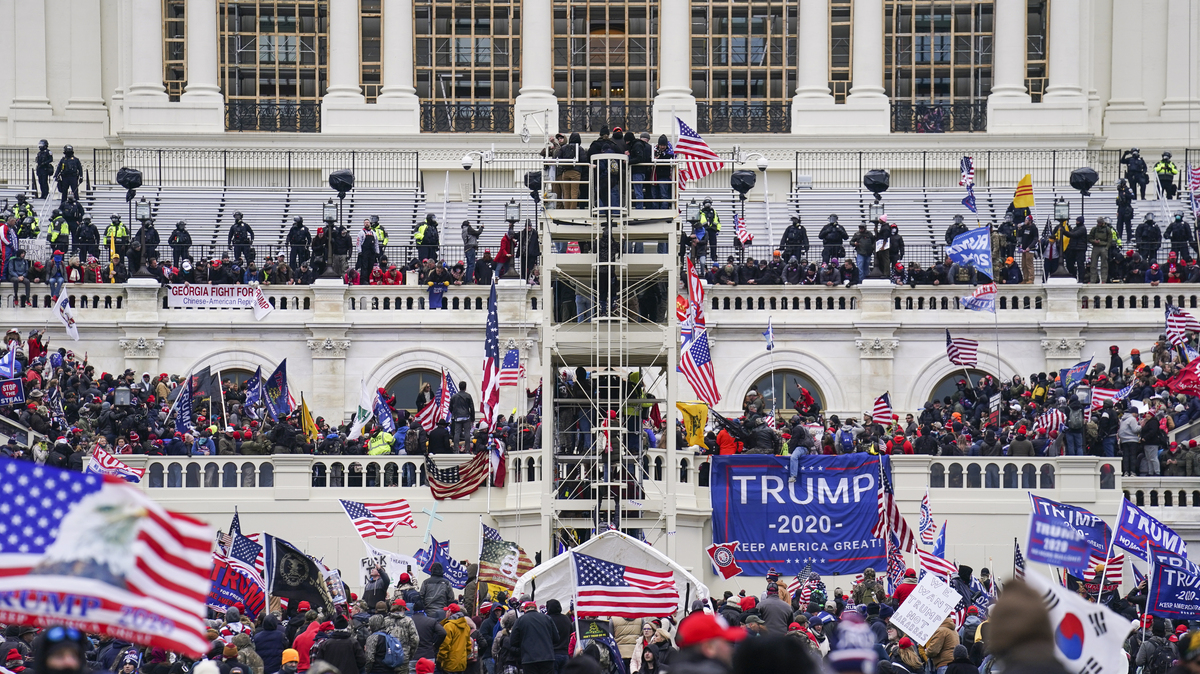
Insurrectionists loyal to President Donald Trump breach the Capitol in Washington on January 6, 2021. John Minchillo/AP hide caption

Insurrectionists loyal to President Donald Trump breach the Capitol in Washington on January 6, 2021.
John Minchillo/APBefore he took office, President Joe Biden said stopping domestic extremism would be a priority for him. His administration has now created the Center for Prevention Programs and Partnerships to stop radicalization before it starts. But critics say it's a repackaging of failed strategies and inadequate.
NPR correspondent Odette Yousef has been reporting on the efforts of this new program built on old strategies.
Email us at
This episode was produced by Brent Baughman and Lee Hale. It was edited Fatma Tanis and Andrew Sussman. Our executive producer is Cara Tallo.

 Live Radio
Live Radio